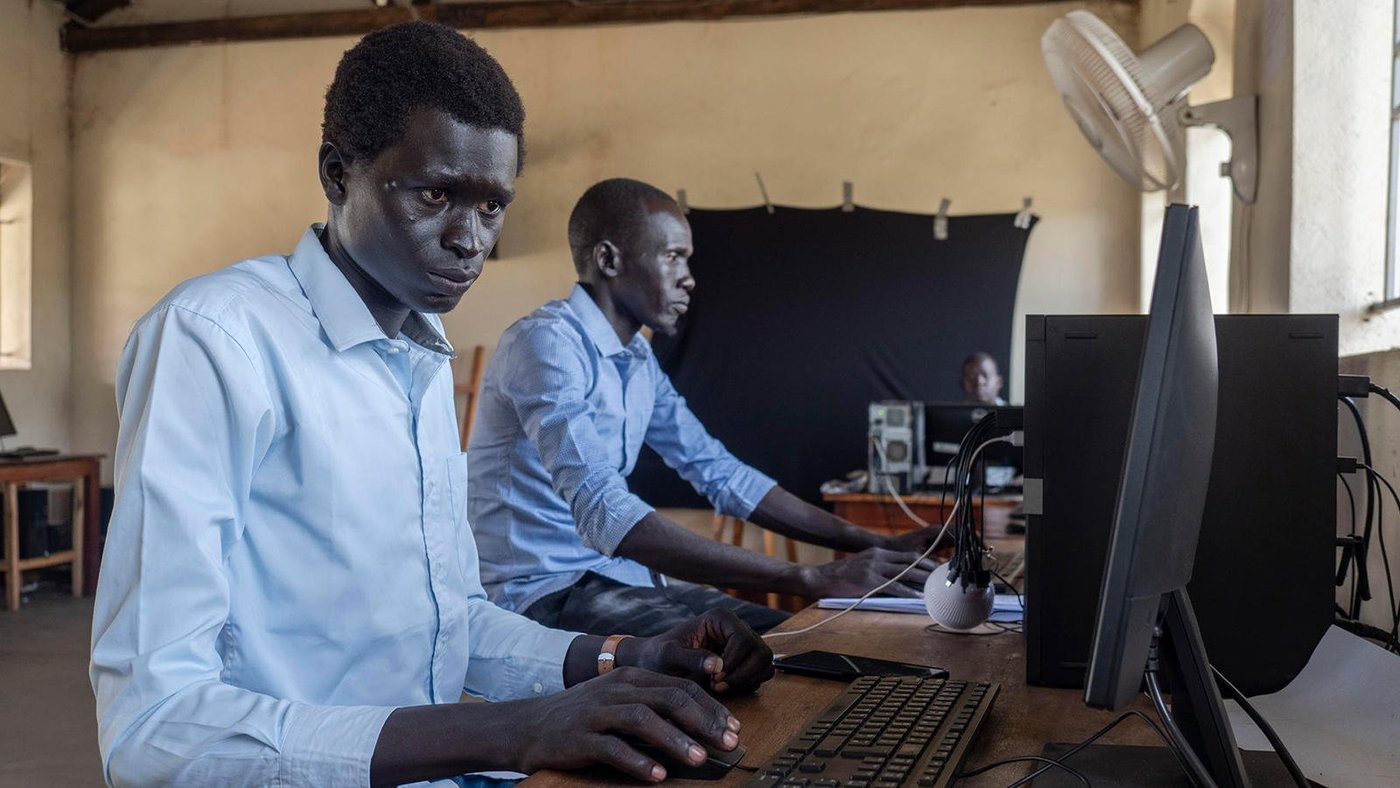Young people who have been forced to flee often struggle to get the education and training they need. Only 3 per cent of young refugees have access to education after finishing school, compared to 36 per cent of young people across the world.
David is one of the lucky ones. A resident of Nyumanzi refugee settlement, he completed high school at a local school in Uganda. He went on to enrol on a computer science course run by the Norwegian Refugee Council (NRC) in partnership with Arizona State University (ASU).

Dream of becoming an engineer
“The computer skills training course has opened many possibilities,” he says. “I am now enrolling in university. It is very important to have that certificate.”
David has big plans for his home country of South Sudan – a nation still plagued by violence despite achieving independence in 2011.
“My country is not stable in terms of security,” he explains. “There are no good structures or infrastructures. I have a dream of becoming an engineer. We will be the ones to build our country.”

Adau, 24, fled from South Sudan in 2014, together with her mother and sister. She was out of school for five years but has now completed NRC’s computing training course and hopes to study at Kampala University.
“Education is important to me because it is the key of life,” she explains.

Like David, Adau wants to work towards a brighter future for her home country.
“After my studies, I want to go back to South Sudan and help to build the country,” she says.
“I want to do computer science. Without technology the country can’t become perfect. You protect the country by using networking and technology.”

A growing demand
The course has proved highly popular among the young people of Nyumanzi settlement.
“It is a course that the young people are very interested in,” explains Ulrika Blom, country director for NRC Uganda. “We have more applications, more youth that want to participate than we can actually provide for.”
“By investing in skills opportunities for young people, we help them to grow and fulfil their dreams.”
For David, the course is a vital stepping-stone on his educational journey. “If we finish successfully,” he says, “then we will be able to change our country.”


